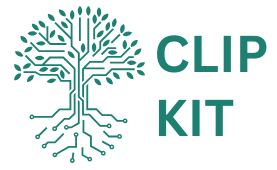Table of Contents
ToggleNailing an interview isn’t just about showcasing skills and experience; it’s also about asking the right questions. Imagine sitting across from your potential boss, and instead of fumbling for words, you confidently toss out questions that make you sound like the next corporate superstar. Good questions can turn the tables, showing your genuine interest and setting you apart from the crowd.
Think of questions as your secret weapon. They can reveal company culture, expectations, and even whether there’s free coffee in the break room. Plus, asking insightful questions can make you feel more like a partner in the conversation rather than a nervous candidate. So, if you’re ready to elevate your interview game and leave a lasting impression, it’s time to explore the art of asking the right questions.
Importance Of Asking Good Questions
Asking good questions during a job interview plays a crucial role in demonstrating interest. Candidates showcase their engagement when they inquire about the company’s culture, values, and expectations. Finding the right questions allows candidates to uncover vital insights, helping them assess their fit within the organization.
Strategically crafted questions provide a platform for candidates to express their curiosity. In doing so, they invite conversation that goes beyond surface-level topics. For example, asking about team dynamics may reveal how collaboration functions within the workplace. Knowing team structures and potential work relationships can influence the candidate’s decision-making process.
Employers often perceive thoughtful inquiries as a positive sign of a candidate’s preparation. Candidates can set themselves apart when they go beyond typical questions, showcasing analytical thinking. Questions regarding metrics for success or potential career growth demonstrate an understanding of future commitment.
When candidates engage in meaningful dialogue, it creates an inviting atmosphere for discussion. This approach encourages interviewers to share personal experiences and insights about their roles. By fostering this connection, candidates feel more confident, leading to a more impactful interview experience.
Lastly, asking specific questions helps candidates gain clarity on whether the role aligns with their career aspirations. Prioritizing relevant topics emphasizes the candidate’s intent to contribute effectively. Recognizing the significance of questions empowers candidates to navigate interviews with purpose and assurance.
Types Of Good Questions

Good questions categorize into various types, enhancing the interview process. Candidates can use specific question types to gather critical information about the role and organization.
Open-Ended Questions
Open-ended questions encourage deeper discussions and insights. For instance, asking, “Can you describe the team dynamics?” opens the floor for the interviewer to elaborate on interpersonal relationships and collaboration strategies. These inquiries promote a sense of curiosity, allowing candidates to assess their potential fit within the organization. Furthermore, such questions demonstrate a genuine interest in the company culture, stimulating engagement. Notably, open-ended questions also provide candidates with valuable information to make informed decisions.
Clarifying Questions
Clarifying questions help candidates gain a better understanding of job expectations and responsibilities. For example, when faced with vague answers, asking, “Could you elaborate on the key performance indicators for this role?” addresses any confusion. These inquiries show analytical thinking, revealing a candidate’s desire for clarity. Moreover, they allow candidates to assess whether their skills align with the company’s objectives. By seeking clarification, candidates exhibit professionalism and commitment, improving the overall interview experience.
Questions To Ask About The Role
Inquiring about the role enhances understanding of job expectations and dimensions. Candidates can gain deeper insights by asking specific questions about responsibilities and performance metrics.
Job Responsibilities
What are the day-to-day responsibilities of this position? This question helps clarify tasks and priorities. Understanding the expected contributions enables candidates to assess their fit for the role. Candidates can also ask about team collaboration and any cross-functional interactions. Information about reporting structure offers further clarity regarding the role’s context. Candidates often inquire about tools or technologies used, which shows readiness to engage in the working environment.
Performance Expectations
What are the key performance indicators for this role? This question provides a framework for success, indicating how performance will be measured. Insight into expected timelines and project goals helps candidates gauge whether they can meet these standards. Asking how success is celebrated within the team reveals the company’s recognition culture. Candidates might also inquire about review cycles and feedback processes to understand growth opportunities better. Such inquiries reflect a commitment to continuous improvement and alignment with company objectives.
Questions To Ask About Company Culture
Asking about company culture reveals essential insights into how the organization operates and interacts. Candidates can better understand the work environment by exploring specific areas like team dynamics and organizational values.
Team Dynamics
Inquire about the team structure and collaboration methods. Asking how teams communicate reveals important information about the workplace atmosphere. Understanding preferred tools for collaboration can highlight the organization’s approach to teamwork. Additionally, asking about conflict resolution within teams offers a glimpse into how challenges are navigated. Learning about team-building activities can further illustrate the company’s commitment to fostering relationships among employees.
Organizational Values
Explore the core values that guide the company’s mission. Candidates can ask which values the organization prioritizes during hiring and decision-making processes. Inquiring about how values manifest in day-to-day operations provides clarity on the company’s culture. Understand how leadership embodies these values in their actions and communications. Investigating examples of values in practice enhances insight into the organization’s commitment to maintaining its principles.
Questions To Ask About Growth Opportunities
Asking about growth opportunities during an interview can provide insight into a candidate’s future within the organization.
Training And Development
Inquire about available training programs. Understanding what development opportunities exist showcases commitment to continuous improvement. Ask if the company offers mentorship or sponsorship programs. Mentoring relationships facilitate skill enhancement and professional connections. Clarifying training expectations can help candidates assess if the role aligns with their learning goals. Additionally, it’s beneficial to ask how performance reviews tie into development opportunities. Gaining information on feedback mechanisms allows for growth plans tailored to individual aspirations.
Career Advancement
Explore the typical career paths within the organization. Candidates can learn how employees advance over time by asking about progression timelines. Questions regarding promotions provide insight into criteria and expectations for advancement. Understanding the path of others helps candidates visualize their future with the company. Additionally, ask leaders about succession planning. Insight into how the organization prepares for future roles offers clarity on stability and growth potential. Finally, inquire about lateral moves or cross-departmental opportunities. Accessing diverse experiences can enhance skill sets and open additional career avenues.
Asking thoughtful questions during an interview can significantly enhance a candidate’s experience and impression. It’s not just about gathering information; it’s about building a connection with the interviewer and demonstrating genuine interest in the role and organization.
By strategically inquiring about responsibilities, company culture, and growth opportunities, candidates can gain valuable insights that help them assess their fit within the organization. This approach not only showcases analytical thinking but also reflects a proactive mindset.
Ultimately, the right questions empower candidates to navigate interviews with confidence, making them memorable and informed participants in the hiring process.




